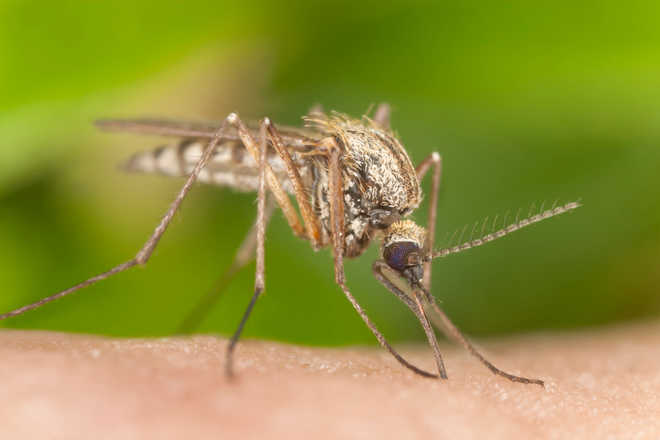
Washington
A new study has revealed that malaria-spreading mosquitoes require minute changes in concentrations of exhaled carbon dioxide to know whether you are at home or not, which then triggers them to land on human skin.
Females of the malaria-spreading mosquito tend to obtain their blood meals within human dwellings and this mosquito, Anopheles gambiae, spends much of its adult life indoors where it is constantly exposed to human odor from used clothing, bedding and etc. and even when people are absent.
Entomologists at the University of California showed that the mosquitoes respond very weakly to human skin odor alone and found that the mosquitoes' landing on a source of skin odor was dramatically increased when carbon dioxide was also present, even at levels that barely exceed its background level.
The researchers also suggested that the mosquitoes use a “sit-and-wait” ambush strategy during which they ignore persistent human odor until a living human is present.
Researcher Ring Carde said that responding strongly to human skin odor alone once inside a dwelling where human odor is ubiquitous is a highly inefficient means for the mosquito of locating a feeding site.
Carde added that they already know that mosquitoes will readily fly upwind towards human skin odor but landing, the final stage of host location, which typically takes place indoors, does not occur unless a fluctuating concentration of carbon dioxide indicates that a human host is present. It may be that upwind flight towards human odor has more to do with locating a human dwelling, which emits human odor even when its occupants are absent, than locating a feeding site per se.
The findings could help in the design on new types of mosquito control. One take-home message from this work is that studies defining which human odors mediate host finding and which compounds are good repellents need to precisely control exposure to above ambient carbon dioxide.
This study is published online in the Journal of Chemical Ecology.
ANI


























